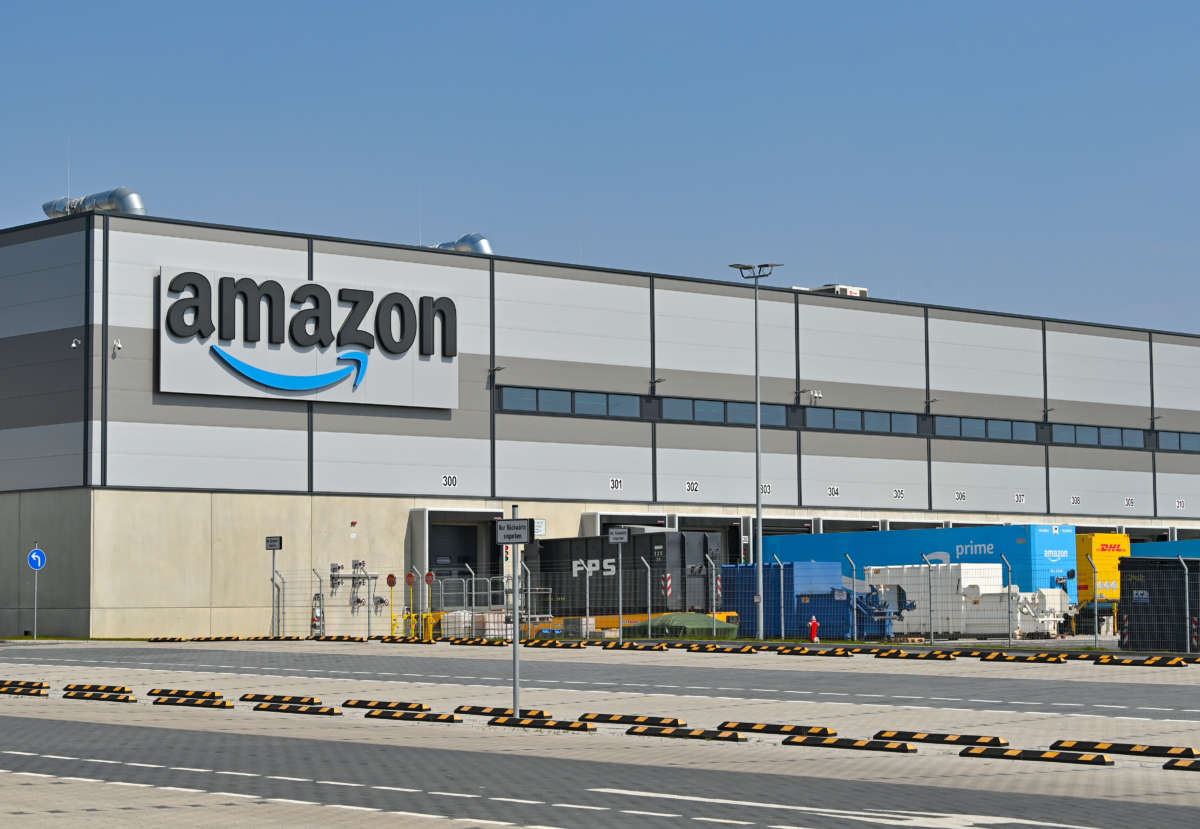Labor rights experts and workers praised the passage of a first-of-its-kind bill in California aimed at empowering warehouse employees at Amazon and other companies that use algorithms to enforce quotas — often pushing them to skip breaks and work unsafely in order to “make rate.”
The state Senate’s passage of Assembly Bill 701 — which was expected to pass in the state Assembly on Friday, three months after the chamber approved its own version of the legislation — would require companies to disclose to the government and to their employees the quotas that are used to track productivity, prohibit penalties for “time off-task,” and bar companies from retaliating against workers who complain about the metrics used.
Workers would also be empowered to sue companies that continue to use quotas if they keep employees from taking bathroom breaks and following safety guidelines, as has been widely reported at Amazon’s fulfillment centers in the U.S. and abroad.
As the workers’ rights platform Organise reported in a survey taken in 2018, 74% of Amazon warehouse workers avoided taking bathroom breaks for fear of not meeting quotas for packing merchandise, and more than half of the workers said they had suffered from depression since working for the e-commerce giant.
As Common Dreams reported in June, data Amazon provided to the federal Occupational Safety and Health Administration (OSHA) showed that Amazon employees sustain injuries more often than workers at other warehouses. Serious injuries were reported about 80% more often among Amazon workers than other employees.
Journalist James Bloodworth reported after going undercover as an Amazon warehouse employee that his coworkers frequently urinated in plastic bottles to avoid taking the time to go to the restroom — a practice that’s also been reported among the company’s delivery drivers, as the company was forced to admit earlier this year.
One former Amazon employee who is now an organizer with the Warehouse Worker Resource Center, Yesenia Barrera, told The Guardian that she only learned she was being surveilled at work when she injured herself and her manager saw through the scanner she was using that she went “off-task” due to the injury.
“It is really stressful and physically demanding to keep up,” Barrera told the outlet. “They never tell us how much we are doing, you are never really sure how well you are doing — we are just told to keep going.”
California Assemblywoman Lorena Gonzalez told The New York Times last week that in writing the legislation, she aimed to take on “this increased use of quotas and discipline based on not meeting the quotas, without a human factor in dealing with a reason why a worker might not make a quota.”
Athena, the nationwide grassroots coalition of advocacy groups fighting Amazon’s labor practices, hailed the passage of A.B. 701 as an “historic victory.”
Dr. Beth Gutelius, research director at the Center for Urban Economic Development at the University of Illinois Chicago, told the Times that it is “unprecedented for a bill to intervene like this in the ways that technology is used in the workplace.”
The historic #AB701 victory over Amazon in California led by Athena coalition leaders @wwunited @LAANE and @LALabor to #ProtectAmazonWorkers!
Story by @alinaselyukhhttps://t.co/WIcthCUWcM pic.twitter.com/IvolBDBlge
— Athena Coalition (@athenaforall) September 9, 2021
Republican lawmakers in California who opposed the legislation have claimed companies like Amazon — which reported a net income of $21.3 billion in 2020, up $10 billion from the year before, and a revenue of more than $386 billion — will be forced to raise prices due to the cost of complying with the new legislation, if Gov. Gavin Newsom signs the bill into law.
“It was on the backs of those workers that Amazon’s profits were supercharged during Covid and Jeff Bezos got richer by $70 billion,” said Athena. “That’s 2.4 MILLION times what the median Amazon worker makes.”
“A.B. 701 is how we start winning our power and safety back,” the coalition added.
Press freedom is under attack
As Trump cracks down on political speech, independent media is increasingly necessary.
Truthout produces reporting you won’t see in the mainstream: journalism from the frontlines of global conflict, interviews with grassroots movement leaders, high-quality legal analysis and more.
Our work is possible thanks to reader support. Help Truthout catalyze change and social justice — make a tax-deductible monthly or one-time donation today.
